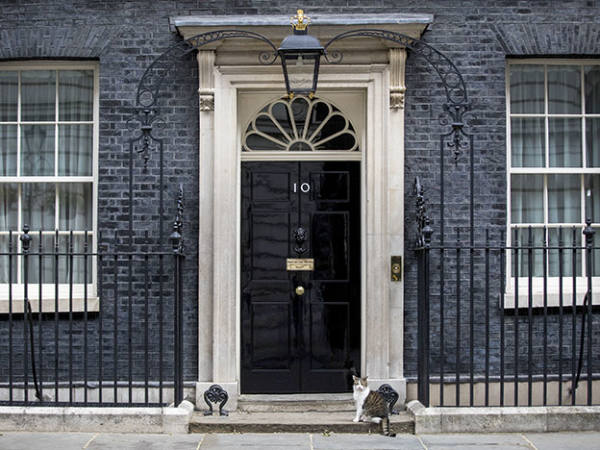- Retailers and landlords have called for business rates reform ahead of relief ending on 31 March
- The tax could cause more tenants to close, causing commercial landlords to lose income and incur additional costs
The enforced closure of swathes of the retail world has heaped further pressure on an industry that was already struggling to compete with the surge in online shopping prior to the pandemic. The introduction of an almost year-long business rates holiday has been a rare source of relief.
Yet as that tax holiday is due to end on 31 March, retailers and commercial landlords are pushing for fundamental reform of the way business rates are calculated within the upcoming Budget, fearing that without it more shops and leisure outlets could be forced to shut their doors.
Landlords stand to benefit from rates being reduced not only by rent payments potentially becoming more affordable, but also because they have remained liable to pay the tax on empty premises through the pandemic.
The scheduled end of the rates relief is due to coincide with the termination of the moratorium on commercial evictions and other legal enforcement actions, as well as the second-quarter rent collection date.
The worst-case scenario for landlords would be if the government does not extend the business rates holiday but does push back the moratorium deadline, argues Knight Frank head of retail research, Stephen Springham, as more cash-strapped tenants could decide to hold back on rent payments. “We’ve got three ticking time bombs there and if they all go off we’re looking at a real blood bath,” says Springham.
Business rates are based upon a property's ‘rateable value’ (RV), which represents the estimated open market annual rental value of the premises at a set point in time. A ‘multiplier’, currently set at 51.2p for properties with a RV of £51,000 or more, is applied to that value to determine the rates bills, before any relief measures are taken into account.
The sharp increase in this ‘multiplier’ since the tax was introduced in 1990 is a particular source of ire within the retail industry. Last month, a coalition of companies and organisations, including the bosses at Next (NXT) and landlords Hammerson (HMSO) and NewRiver Reit (NRR), wrote an open letter to the chancellor urging him to significantly reduce the rate from around 50 per cent, to a level closer to the historic norm of 35-40 per cent of the market rent.
“Over a long period now business rates have increased substantially and they have increased ahead of the rate of inflation,” says NewRiver Reit chief executive Allan Lockhart. He argues that the ‘multiplier’ should not only be brought down but that RVs should be reassessed annually, rather than every five years, which does not take into account fluctuations in rental values. “Therefore to have a system where rateable values are revalued every five years is just ridiculous,” says Lockhart.
Handing retailers a larger bill every five years creates a pinch point, argues Springham. “It lets the grass grow under the feet if it’s left too long and that’s where the mismatches come to a head: when there’s too much of a delay,” he says.
In May, the government announced that it would postpone the 2021 revaluation in an effort to reduce uncertainty for businesses affected by the pandemic. The next revaluation in England will take effect on 1 April 2023 and will be based on property values as of 1 April 2021, “to better reflect the impact of Covid-19”, the government said.
However, those revaluations could already be detached from the reality of market rents by the time the new business rates take effect. The anticipated rise in administrations and company voluntary arrangements post-pandemic is likely to accelerate the long-standing decline in rental - and capital - values. Colliers International forecasts that standard retail premises will suffer an average annual 4.1 per cent fall in estimated rental values between 2020 and 2024.
The pandemic has also pushed up property vacancy rates, which stands to continue costing landlords without business rate reform. During the fourth quarter, the overall shop vacancy rate across Great Britain increased to 13.7 per cent, according to the British Retail Consortium, the tenth consecutive quarterly rise.
“We have continued to pay business rates on empty properties and going forward that’s not conducive to us, then, continuing to invest,” says NewRiver Reit’s head of asset management and ESG, Emma Mackenzie. Having to stump up cash for business rates hits the Reit’s net operating income, she says, which weighs on the portfolio valuations and impacts its ability to raise further capital.
In July the government launched a call for evidence on how the business rates system could be improved to help reduce “the overall burden on business”. A Treasury spokesperson said: “We want to see thriving high streets, which is why we’ve spent tens of billions of pounds supporting shops throughout the pandemic and are supporting town centres through the changes online shopping brings.” The Treasury is currently considering responses to its call for evidence and will update in due course, the spokesperson added.
That review also asked for feedback on the potential introduction of an online sales tax, something retailers and landlords argued was necessary to “rebalance the tax base” and would ensure that cuts to business rates were revenue neutral. “[It’s] the only fair way to go because online penetration is high and has been increasing,” argues Lockhart.
Yet at a time when the Treasury is looking for sources of revenue to balance the books, the prospect of major cuts to business rates in the upcoming Budget seems unlikely. Yet without reform soon, the pool of high street tenants looks set to diminish even further.














